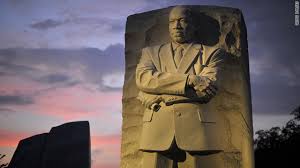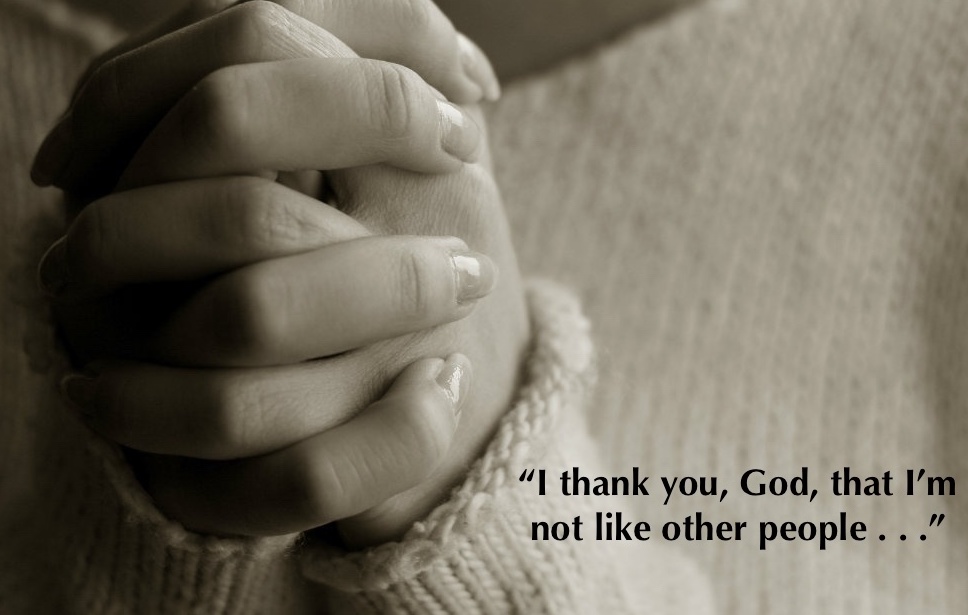 Kingdom of God
Kingdom of God What Time Is It?
 Monday, January 16, 2017 at 08:29AM
Monday, January 16, 2017 at 08:29AM  After John was put in prison, Jesus went into Galilee, proclaiming the good news of God. "The time has come," he said. "The kingdom of God is near. Repent and believe the good news!" ~ Mark 1:14–15
After John was put in prison, Jesus went into Galilee, proclaiming the good news of God. "The time has come," he said. "The kingdom of God is near. Repent and believe the good news!" ~ Mark 1:14–15
Who knows God’s timing? It’s one thing to agree with God’s viewpoint intellectually; it’s quite another to express our agreement in concrete action. Jesus modeled agreement with the Father by doing God’s will in perilous times. Mark’s gospel tells us Jesus launched his ministry at the very time that the Kingdom message could get you thrown into jail.
In an atmosphere of resistance and oppression Jesus said that the time was right to proclaim good news. Herod, a puppet-king of the powerful Roman Empire, threw John the Baptist in jail because John’s preaching had threatened the status quo. Perhaps Jesus should have kept things on the down low until passions had cooled. You can almost hear the counsel of the worldly-wise in Jesus’ day: “Wait just a little while,” they whispered. “Let the rich and powerful turn their attention away from preachers in the countryside.”
In a world overrun by a pagan power, in a world rife with political scheming and considerations, in a world where caution was the order of the day, Jesus boldly declared that good news, the best news, was within reach. Jesus modeled a ministry directed by the Spirit. What kind of person tells suffering, mourning captives that freedom is within their reach? The source of his good news had nothing to do with the powers of the age and everything to do with the in breaking of God’s rule and reign into their time.
It’s only natural to look for the “best time” to engage in ministry: wait until the economy is stronger; until the political climate is warmer; until the streets are safer, until your children are older, until your savings account is fatter. Wait. Jesus had a different schedule. He said simply, “The time has come.” He took into consideration only one factor: God’s Kingdom was at hand. The Kingdom of God does not require us to wait on the future because it is breaking into the present. God’s Kingdom was (and is) beginning to invade the kingdoms of the earth. God was on the move, how could Jesus remain still? It's true for us: we are called to imitate his example. If God is on the move, how can we remain still?
Jesus is serving the best wine now because he dwells in the now. “The time has come” each day. Since Jesus inaugurated the in breaking of the Kingdom, every day with God presents opportunities to announce and demonstrate the Kingdom of God. The only important question is whether we know what time it is.
Imagining My Father
 Friday, January 6, 2017 at 02:06PM
Friday, January 6, 2017 at 02:06PM  When Jesus says something once, you can be sure it’s important. If he repeats himself a second time, it’s critical. But what if Jesus says something eleven times? Many of us have read the “Sermon on the Mount” over and over. It’s unmatched in beauty and clarity; many of its phrases have worked their way into the everyday speech of western society. In the Sermon on the Mount Jesus repeats a simple two-word phrase eleven times.
When Jesus says something once, you can be sure it’s important. If he repeats himself a second time, it’s critical. But what if Jesus says something eleven times? Many of us have read the “Sermon on the Mount” over and over. It’s unmatched in beauty and clarity; many of its phrases have worked their way into the everyday speech of western society. In the Sermon on the Mount Jesus repeats a simple two-word phrase eleven times.
The other day, as I was reading this passage again, I tried to imagine that I was one of the people gathered on that hillside. I tried to imagine the sound of his voice and feel the breeze soothe the perspiration on my forehead. I began to hear these words with new ears. Jesus kept repeating two simple words over and over. When he talked about the light of the world, he used this phrase. When he talked about loving our enemies, he used these words. And again, as he moved on to generosity, prayer, and fasting, there were these same words. The words I heard over and over were simply, “Your Father.”
I began to sense that in addition to the substance of the message Jesus also wanted to plant something deep in my spirit: the assurance that God Himself is my Father. “Of course,” you might think. “We are all God’s children.” Our idea of the Holy Trinity begins with ”God the Father.” But it’s one thing to recognize God’s title as Father, it is quite another to know him as such.
As I put myself among the listeners I began to perceive something beyond an idea, beyond a theological construct. I heard Jesus remind me again and again that I have a Father, a Father in Heaven. I have a perfect Heavenly Father. What’s more, my Father is within my reach. He’s able to find me in the most hidden place. He is actively involved in my day, my actions, even my thoughts, and this is a good thing, because he’s my Father.
I went back to the beginning of the Sermon on the Mount, this time with a pen in hand. I made a list of affirmations about my Father and me. After closing the book, I had a list I could read aloud. Alone in my office, I read each one out loud. I heard the sound of my own voice speak the truth about God, who is also my Father. It was a list of things I could be sure of.
• My Father encourages me to love my enemies and pray for those who persecute me.
• My Father wants to perfect me.
• My Father does not reward “outward performance.”
• My Father sees what I do in secret and will reward me.
• My Father will meet me behind closed doors.
• My Father knows what I need before I ask Him.
• My Father forgives me when I forgive others.
• My Father feeds the birds; He will feed me.
• My Father knows what I need.
• My Father gives me good gifts from heaven when I ask Him.
I learned one final thing sitting on the hill with Jesus. There’s a phrase he uses only once, but once was enough for me: “Our Father.” At the very beginning of what we call the “Lord’s Prayer” Jesus doesn’t start with the words, “My Father,” he starts with “Our Father.” I saw Jesus, my brother, someone who is with me whenever I pray. I saw a picture of Jesus putting his arm around me, saying, “Whatever it is that’s troubling you, whatever it is you need, come on—let’s go to our Father together.”
Perhaps today you will rediscover Jesus, your Brother, and God, your Father. Peace!
Guest what? The Christmas Story is Also Scripture!
 Tuesday, December 20, 2016 at 02:36PM
Tuesday, December 20, 2016 at 02:36PM  What we know of the birth of Jesus comes to us as divine revelation in the inspired words of the gospels. We get the Christmas story from the scriptures. As I prepare for the Christmas season I will read these passages again and again. They are familiar and comforting, and perhaps that’s the problem: because I have come to these passages so often, I am tempted to think that there’s nothing new for the Holy Spirit to reveal through these words. That would be a mistake, because the story of the birth of Jesus is not only a heartwarming tradition, it’s also useful for training in right relationship with God. What better way to prepare for Christmas than to go deeper in our personal relationship with the Father?
What we know of the birth of Jesus comes to us as divine revelation in the inspired words of the gospels. We get the Christmas story from the scriptures. As I prepare for the Christmas season I will read these passages again and again. They are familiar and comforting, and perhaps that’s the problem: because I have come to these passages so often, I am tempted to think that there’s nothing new for the Holy Spirit to reveal through these words. That would be a mistake, because the story of the birth of Jesus is not only a heartwarming tradition, it’s also useful for training in right relationship with God. What better way to prepare for Christmas than to go deeper in our personal relationship with the Father?
Let me suggest that the birth narratives (like all scripture) are life-giving meat for students of Jesus. These passages are filled with challenges to our fait, and filled with the encouragement we need to grow in God. Here are just four observations from the first chapter of Matthew.
1). Poor Joseph--God didn’t get his approval before acting. Can you imagine the real-life shock of these words: “Mary was pledged to be married to Joseph, but before they came together, she was found to be with child through the Holy Spirit.” (Matthew 1:18) Mary received an angelic visitation and the overshadowing of the Holy Spirit. Joseph received the worst news of his life. God “drafted” Joseph into a difficult position--would the Almighty ever do the same to us? Have we ever considered the implications of God’s sovereignty? If we affirm that we belong to God are we willing to be drafted as Joseph was?
2). The narrative reveals the actions of a righteous man. In his confusion and pain, Joseph’s first concern was for Mary, he “did not want to expose her to public disgrace.” (1:19) How many of us would have this priority? Perhaps this is why the scripture labels Joseph a “righteous man.” Scripture is demonstrating what true righteousness looks like in action. It’s revealing as well that the scripture describes Joseph's righteousness not in terms of his relationship to God, but in terms of his relationship to Mary. True righteousness extends two directions--toward God and man.
3). Joseph resisted the urge to act rashly. Even in his concern for Mary and her reputation he was still determined to divorce her (in modern terms, "break the engagement"). Yet verse 20 reveals that he took time to consider his actions. When Joseph was faced with the impossible, he did not rush to judgment. The scriptures do not indicate how long he waited, but he took time to consider his actions. And in that period of time, Joseph positioned himself to hear from God in a most unusual manner:
4). “An angel of the Lord appeared to him in a dream and said, ‘Joseph son of David, do not be afraid to take Mary home as your wife.’” God gave Joseph a dream, a dream that would change his life forever. This must’ve been some dream, or Joseph must’ve been some righteous man, or both. Engagement, unexpected pregnancy, and an out-of-this-world explanation would be enough to give anyone dreams. But God chose a dream as the means to provide divine direction, and Joseph recognized the dream as God’s personal leading. In fact, dreams are mentioned no fewer than four times in Matthew 1 & 2. I believe scripture is teaching us that God can and does guide his children through dreams. Imagine: in an emotionally charged situation, just when we would be tempted to ignore our dreams as a product of our subconscious, God is present: leading, directing, and guiding--through dreams. By the way, there is no indication that Joseph heard anything else from God until after the baby was born. He remained faithful to God’s instructions for months, all based on one dream!
The Christmas season offers an opportunity to any student of Jesus. Can we imagine ourselves in these situations? Between Matthew and Luke's gospels, the cast of Christmas characters is pretty large: Mary, Joseph, Elizabeth, Zechariah, Simeon, Anna, the Magi and shepherds. They are the stuff of Christmas pageants, and cheesy church dramas, but they are also the stuff of God’s instruction to his disciples.
The Dangers of Thanksgiving
 Tuesday, November 22, 2016 at 03:01PM
Tuesday, November 22, 2016 at 03:01PM  There are two ways to be thankful, and one of them is deadly.
There are two ways to be thankful, and one of them is deadly.
On the surface all thankfulness sounds good, but the path we take toward thankful words makes all the difference. The deadly path is gratitude based upon the lack of others. We look around and discover our place on the scale of good luck and think, “I’m glad I’m better off than them.” This is thanksgiving relative to someone else’s situation in life. It is Relative Thankfulness.
Relative thankfulness sees the world as a zero-sum game. It’s grateful the score is tilted in its favor. Perhaps you’ve heard the sound: “There are so many people struggling, but thank goodness I’m not among them.” Relative thankfulness has a thousand expressions: “we have bounteous table in a world where so many are hungry; I got the promotion over the other five candidates; I may have only one pair of shoes, but there are people in the world with no feet.”
Tune your ear to its nuance: the sound of relative thankfulness is everywhere, even in the houses of the holy: “Two men went up into the temple to pray, one a Pharisee and the other a tax collector. The Pharisee stood and was praying this to himself: ‘God, I thank You that I am not like other people: swindlers, unjust, adulterers, or even like this tax collector.” (Luke 18:10-11) After praying prayers of relative thankfulness we discover we’ve only been talking to ourselves. We also find ourselves ranking the other people at the temple.
But there is a path that leads to life, thanksgiving that enters the gates of God’s estate. Healthy thanksgiving is absolute. Without qualification. It has no need to look about. Absolute thanks focuses on the Giver and the gift. Absolute thanks understands that the gift says everything about the Giver—and next to nothing about the one who receives it, other than the receiver is the object of perfect love. Relative thankfulness looks around; absolute thanks looks up. Absolute thanks yearns for everyone to know such joy. Absolute thanks is the little boy who hits a home run, and wishes every other boy on the team will get the same chance to experience the thrill of taking the victory lap.
Here is the danger, the destination, of relative thankfulness: it is tempted confuse the goodness of God with the goodness of the recipient. Relative thankfulness has favorite verses in the Bible: “Tell the righteous that it shall be well with them, for they shall eat the fruit of their deeds.” Or, “No good thing will He withhold from those who walk uprightly.” And as true as these verses are, relative thankfulness thinks the kindness and mercy of God somehow validates its own lifestyle. From there it’s only a short step to wondering out loud why in heaven’s name God would show kindness to others or why the rain would fall on the unjust as well as the just. It is dangerously close to envying the good fortune of others. It is incapable of rejoicing with others, or mourning with those who weep.
When the scripture reminds us of gratitude that leads to life, let’s turn our gaze where it belongs, and discover again the pure joy of absolute thanks.
The Secret Beauty of Forgiveness
 Friday, November 4, 2016 at 07:52AM
Friday, November 4, 2016 at 07:52AM  Nothing quite ruins a fancy dinner like an hysterical woman. Polite conversation continues while we all pretend not to notice. Then someone finally speaks up because her behavior is unacceptable. It happened one night when a man named Simon, a proper and meticulous Pharisee, invited Jesus to dinner.
Nothing quite ruins a fancy dinner like an hysterical woman. Polite conversation continues while we all pretend not to notice. Then someone finally speaks up because her behavior is unacceptable. It happened one night when a man named Simon, a proper and meticulous Pharisee, invited Jesus to dinner.
Before we jump to the story, imagine the circumstances before the dinner party began. Simon, a man who respected the law of God, had made plans to be the host. He probably had a personal agenda as well: you don’t invite a celebrity to your house without thinking through the topics of conversation. You try to anticipate all the details in advance and put your best foot forward. Simon instructed his servants to pay attention to every detail.
But then someone slipped past Security and began to make a scene:
One of the Pharisees asked Jesus to eat with him, and he went into the Pharisee’s house and took his place at the table. And a woman in the city, who was a sinner, having learned that he was eating in the Pharisee’s house, brought an alabaster jar of ointment. She stood behind him at his feet, weeping, and began to bathe his feet with her tears and to dry them with her hair. Then she continued kissing his feet and anointing them with the ointment. (Luke 7:36-38)
Perhaps you know the story. Simon recognizes the woman as a sinner from the streets of the city. He thinks to himself, “If this man were a prophet, he would have known who and what kind of woman this is who is touching him—that she is a sinner.” But it doesn’t take a prophet to see someone’s sin and label them as such. The true prophet seated at the table saw something else: the beauty of a changed heart and the seed of loving gratitude taking deep root.
Simon saw a dinner party ruined. Jesus saw a life in repair. He saw the contrast between those who think they have it all under control and those who know for certain they do not. Jesus saw the difference between one person striving to avoid the label “Sinner,” and one who saw that same label as a path to freedom.
The irony of the whole affair is that we would never remember the dinner party if it had gone perfectly. What makes the story worth telling again and again is how everything went wrong in the best possible way. Like that other time when four strangers tore a hole in Peter’s roof, or that time when Jesus ruined a perfectly planned funeral by stepping into the procession and raising the widow’s son. It seems interruptions followed whenever Jesus went—or is it that he himself is the Great Interruption?
That night, at Simon’s place, the interruption was forgiveness. Forgiveness is always an interruption—it interrupts our carefully planned party, our comfortable patterns of thinking. It interrupts the way we have structured our world into good guys and bad guys, into us and them. Forgiveness is Jesus’s preferred scandal. Forgiveness is the uninvited guest who makes a mockery of the fine china of our lives. We can choose between keeping the china in a fancy cabinet, using it only when we pretend everything’s at its best, or smashing the plates and making a mosaic of the shards of our messed-up lives.
Forgiveness cares nothing for etiquette and everything for the gauche. The secret beauty of forgiveness is it’s only available to the sinner.
Jesus speaks forgiveness to the mess and the refuse of all that’s ugly in our lives. His words become the stuff of stories told centuries later, like the time that woman broke in and ruined a dinner party. We should be so lucky to have our plans ruined again today.

